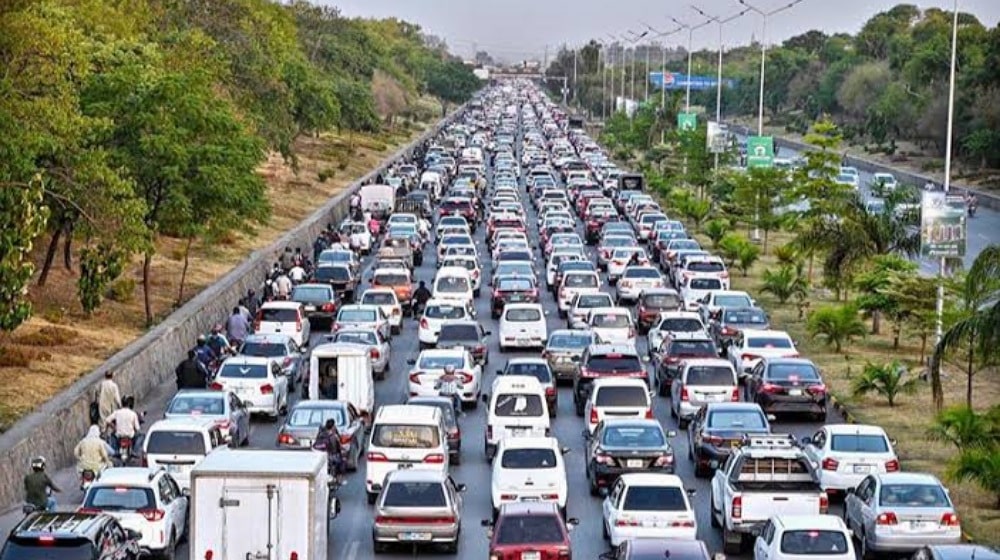SINGAPORE, SINGAPORE, SINGAPORE, February 3, 2026 /EINPresswire.com/ — In the fast-evolving landscape of artificial intelligence, two powerful forces are reshaping how developers and enterprises build, deploy, and scale intelligent…
Author: admin
-

Record-breaking snow blankets Japan, killing at least 30 people | Weather News
Japan deploys troops to help residents and warns people to watch for avalanches and snow falling from roofs.
Published On 3 Feb 2026
Record-breaking snowfall in Japan has been blamed for 30…
Continue Reading
-

Russia signals new era without nuclear arms limits as New START treaty ends soon
Russia has expressed its readiness to adapt to emerging global…
Continue Reading
-

China’s Xi promotes ‘equal, multipolar world’ in talks with Uruguay’s president
Chinese President Xi Jinping met with Uruguayan President…
Continue Reading
-

ARC Raiders Budget Was Reportedly $75 Million
Extraction shooter ARC Raiders was a major release last year. However, despite its scale, it turns out that the game’s developers, Embark Studio, managed to produce the title on a budget of $75 million.
In the most recent SIFTD Games video,…
Continue Reading
-

Samsung Launches Glasses-Free 3D Digital Signage Globally at ISE 2026, Defining a New Era in Immersive Commercial Displays
Display
Global rollout begins today for the 85-inch Samsung Spatial Signage, expanding immersive 3D experiences across high-impact commercial environments
Company unveils next-gen ultra-large signage, a new AI-powered content app and Enterprise partnerships for high-impact business environments
2/3/2026
Samsung Electronics Co., Ltd. today announced the expansion of its commercial display offerings, led by the global launch of Samsung Spatial Signage, at Integrated Systems Europe (ISE) 2026 in Barcelona. The announcement includes new AI-powered content capabilities through Samsung VXT, new additions to Samsung’s ultra-large commercial display lineup and expanded enterprise collaboration with Cisco-certified wide-format display solutions.
“For commercial environments, bringing displays and content solutions together is becoming increasingly important,” said SW Yong, President and Head of the Visual Display (VD) Business at Samsung Electronics. “Glasses-free 3D Spatial Signage, combined with new AI-powered capabilities in Samsung VXT, allows us to deliver a more integrated approach to immersive commercial displays, helping businesses create engaging experiences across a wide range of commercial environments.”
Bringing Brands to Life Across a Range of Environments With Spatial Signage
Spatial Signage (SM85HX) is Samsung’s industry-leading large format 3D digital signage that delivers an immersive visual experience. Using Samsung’s patented 3D Plate technology, it creates a sense of spatial depth positioned behind the LCD panel. Content retains the sharpness of 2D visuals while adding natural-looking 3D depth — without the need for specialized content or equipment such as 3D glasses. The display’s presentation naturally draws attention in retail, luxury, museum and entertainment settings, helping direct focus to key promotions, exhibitions or important information.
The newly launched 85-inch Spatial Signage display features a 4K UHD resolution (2,160 x 3,840) in a 9:16 portrait format, which enables brands and venues to present 360-degree rotating visuals that show front, back and side views of a product or scene.
Powered by Samsung’s industry-leading Quantum Processor, the display provides 4K UHD upscaling, 16-bit color mapping and dynamic HDR refinement to deliver sharper detail, smoother tonal transitions and consistent color accuracy. Additionally, an anti-glare panel helps maintain clarity under bright or challenging lighting conditions.
Spatial Signage features an UltraThin Design with a slim 2-inch profile. Compatible with a Slim Fit Wall Mount, the display installs like conventional signage and integrates cleanly into compact or design-sensitive locations, without the bulky, box-like enclosures typically associated with traditional showcase-style displays.1 Spatial Signage is launching globally in an 85-inch model, with 32-inch and 55-inch sizes to follow.
AI Studio, a new AI-powered content app within Samsung VXT,2 was showcased at ISE 2026 to demonstrate streamlined content creation for all Samsung signage connected to the platform. The app transforms static images into signage-ready video without the need for external tools or manual setup. Content created through VXT’s AI Studio app is automatically optimized with refined shadow detailing, adjusted margins and background treatments for Spatial Signage—creating more realistic and balanced visuals tailored for a wide variety of commercial environments.

Recognized for its pioneering 3D capabilities, Spatial Signage has been named a CES 2026 Innovation Award Honoree in the newly introduced Enterprise Tech category, which made Samsung one of the first to be recognized in the category during its commercial debut at the show. Last year, the display was also named an IFA 2025 Innovation Award Honoree in the ‘Best in Emerging Tech’ category.
Redefining Ultra-Large Signage for Bold Business Impact
Samsung is reinforcing its leadership in ultra-large commercial displays with a growing lineup built for high-impact business environments. At ISE 2026, Samsung introduced the 130-inch Micro RGB signage (QPHX model) to commercial audiences for the first time. Previously unveiled at CES 2026 for the ultra-premium home entertainment market, the display features Samsung’s most advanced Micro LED technology to date. It combines micro-scale RGB LEDs with the Micro RGB AI Engine Pro to deliver vivid color expression and exceptional picture quality in an ultra-slim design, making it ideal for flagship retail and premium spaces.
Also unveiled at ISE 2026 was the 108-inch The Wall All-in-One (MMF-A model) in 2K resolution, engineered to dramatically simplify large-format LED deployment. Like previous models (146-inch 4K and 2K, 136-inch 2K and 110-inch 2K), it reduces on-site setup time and labor compared to traditional LED walls. Installation is possible in as little as two hours, depending on display size.3 However, the new 108-inch model features a more compact, split-panel design that makes supersized LED installation as efficient as mounting two LCD screens rather than a full LED wall — all at a much faster pace.

Together with the previously introduced 105-inch QPDX-5K and 115-inch QHFX models, the addition of the 130-inch Micro RGB Signage and The Wall All-in-One series gives businesses more ways to create immersive, ultra-large visual experiences across lobbies, showrooms, boardrooms and other high-impact commercial spaces. This expanded lineup reinforces Samsung’s 17-year leadership in the global digital signage market.4
Advancing Enterprise Collaboration With Cisco and Logitech Partnerships
Samsung’s 115-inch 4K Smart Signage (QHFX model) and 146-inch 2K The Wall All-in-One (IAB model) lead the industry in advanced ultra-large displays, offering seamless, immersive meeting spaces without the complexity of multi-screen setups. These models are the latest Samsung displays to be certified for compatibility with Cisco’s collaboration devices, joining the previously certified Samsung QMC lineup. Notably, Samsung The Wall All-in-One is the world’s first LED display to receive the certification.5

Cisco certification follows a rigorous testing program to confirm the reliability of the display’s video interfaces and ensure optimized image quality for video meetings. It also confirms the visibility of displays within Cisco’s Control Hub management platform and verifies secure, seamless integration across meeting spaces. Together, these factors contribute to high-quality meeting experiences for participants and improved enterprise management for IT teams.
Additionally, through a new partnership with Logitech, Samsung 4K Smart Signage QBC series is now included in Microsoft’s Express Install for Microsoft Teams Rooms, enabling fast, cost-effective meeting room setups. The offering combines Samsung displays with Logitech’s certified Microsoft Teams Rooms conferencing solution to simplify room installations, allowing them to be completed in under an hour.
Continue Reading
-

Team GB at Milano Cortina 2026 Winter Olympics: Who are the Scots pushing for the podium? – Milano Cortina 2026
- Team GB at Milano Cortina 2026 Winter Olympics: Who are the Scots pushing for the podium? Milano Cortina 2026
- Meet the 17 Scots in Team GB for Winter Olympics BBC
- The Scots heading to the Winter Olympics – with more than a few eyeing medals The…
Continue Reading
-
Immunosuppressant ATG Damages Liver Blood Vessels
Leveraging human organoid-based mechanistic investigation, researchers reveal how an immunosuppressive drug, antithymocyte globulin (ATG), induces injury to blood vessels in the liver. According to the study, ATG first triggers rapid…
Continue Reading
-

Major Islamabad Roads to be Closed Today
Islamabad Traffic Police have issued a traffic advisory for February 3, 2026, warning residents about possible congestion and directing commuters to alternate routes in the federal capital.
According to a spokesperson for the Islamabad…
Continue Reading
-
Middle East does not need Iran-US war, diplomatic adviser to UAE president says – Reuters
- Middle East does not need Iran-US war, diplomatic adviser to UAE president says Reuters
- UAE stresses new long-term solution for Middle East The Express Tribune
- UAE urges political solutions for Gaza and Iran, warns against new wars Geo News
Continue Reading

